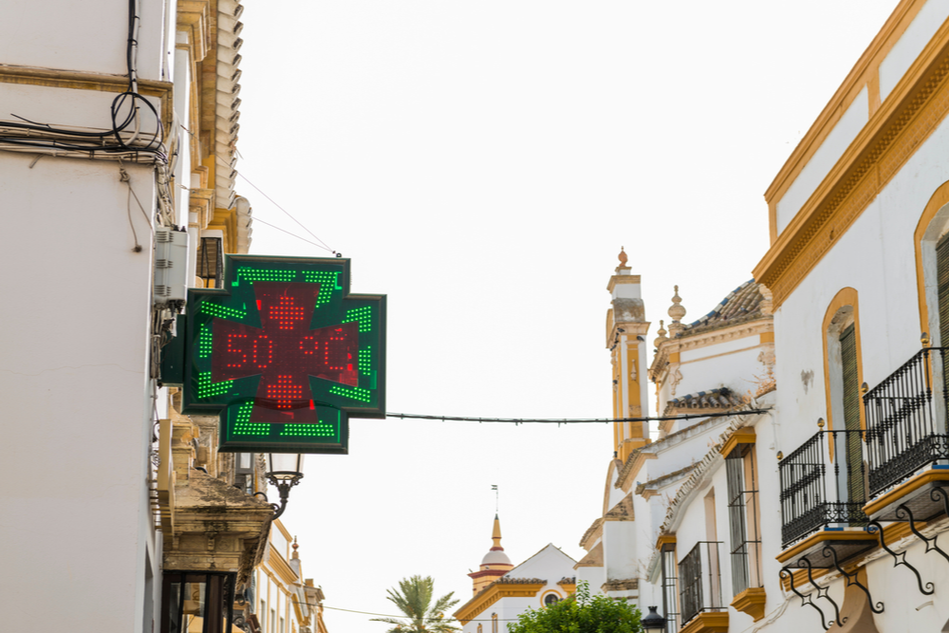When a tropical storm or hurricane gets bestowed a name, people know to take weather warnings seriously and to prepare their households accordingly.
Now, the southern Spanish city of Seville is taking the same approach to heatwaves, becoming the first in the world to name and classify these excessively hot periods. Seville, one of the country’s hottest cities, is taking on this year-long pilot project to better protect its residents from the dangers of extreme heat.
It will classify heatwaves into three categories which will be based on the potential impact that the heatwave will have on human health and mortality. These categories are linked to specific measures such as opening municipal swimming pools or sending health workers to check up on the elderly and other at-risk people.
To determine the impact a heatwave may have, an algorithm that can forecast heatwaves up to five days in advance will be employed. The heatwaves that reach the most severe category (three), will be named in descending order of the Spanish alphabet. The first five names have already been determined: Zoe, Yago, Xenia, Wenceslao, and Vega.
This shift in attitude towards heatwaves, according to the city’s mayor Antonio Muñoz, is part of a bigger set of measures that includes emissions reductions, decarbonization, and other efforts to counter the effects of climate change.
The city is launching the project in partnership with the Adrienne Arsht-Rockefeller Foundation Resilience Centre, also called Arsht-Rock. The center focuses on building resilience in the face of climate change with the help and expertise of climatologists, social and behavioral scientists, and public health experts.
“We are the first city in the world to take a step that will help us plan and take measures when this type of meteorological event happens—particularly because heatwaves always hit the most vulnerable,” explains Muñoz in a statement.
Seven other cities have partnered with Arsht-Rock to develop similar plans that categorize or rank heatwaves. The main goal of such projects is to save lives by raising awareness of the dangerous impacts of climate change.
According to Kathy Baughman McLeod from Arsht-Rock, “Heatwaves have been dubbed ‘the silent killer for a reason. They wreak unseen havoc on our economies, prey on the most vulnerable members of society, and kill more people than any other climate-driven hazard, yet the dangers they pose are grossly underestimated and gravely misunderstood.”
For more tips on how to handle heat-related concerns, check out these articles we’ve shared on heatwaves, helping pets and other animals survive extreme heat, and how to keep your home cool.











